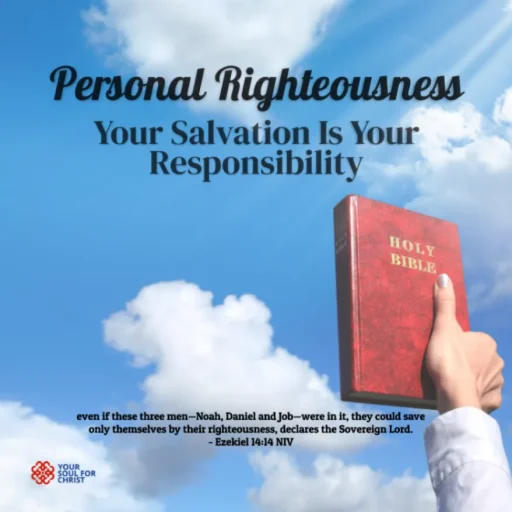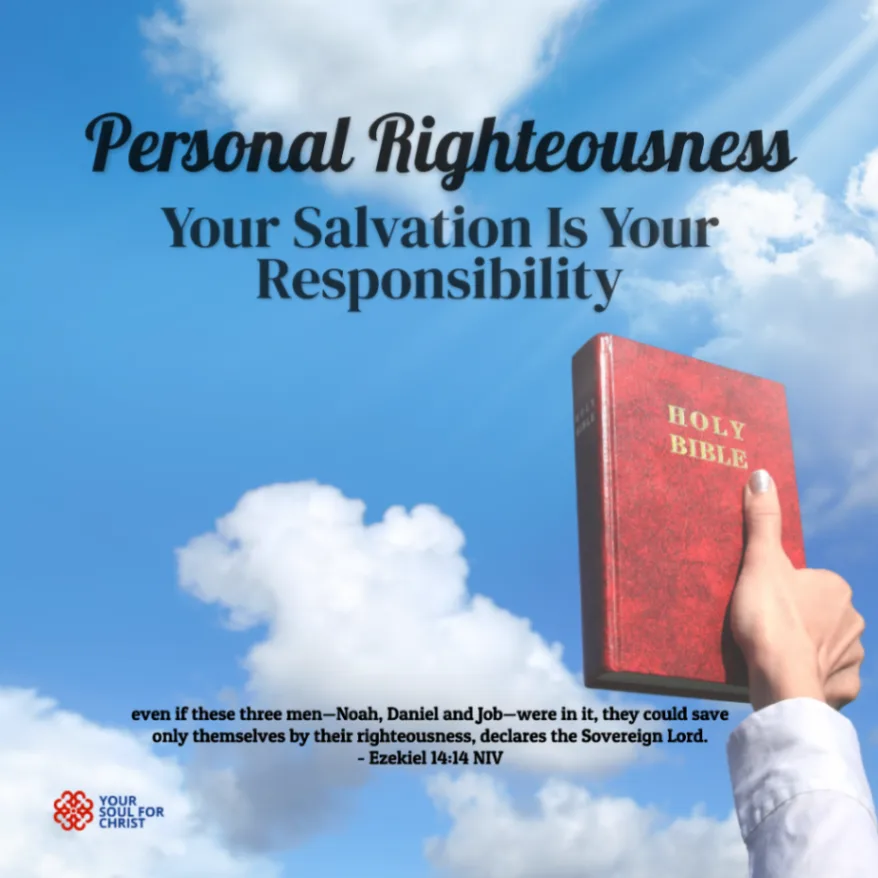even if these three men—Noah, Daniel and Job—were in it, they could save only themselves by their righteousness, declares the Sovereign Lord.
Ezekiel 14:14 NIV
In a world where collective identity often shapes our faith and values, it is easy to assume that being part of a godly community is sufficient for salvation. However, Ezekiel 14 presents a sobering truth—each individual stands accountable before God for their own righteousness. This chapter serves as a powerful reminder that, while corporate faith is valuable, personal righteousness ultimately matters in God’s judgment.
God speaks through the prophet Ezekiel. He warned that if a nation sins against Him, He will stretch out His hand in judgment. Even if Noah, Daniel, and Job—three of the most righteous men in the Old Testament—were present, they could only save themselves by their own righteousness (Ezekiel 14:12–14). This divine principle is repeated emphatically throughout the passage. Whether the judgment comes through famine, wild beasts, the sword, or a plague, God declares that these righteous men could not intercede on behalf of their sons or daughters. Each person would stand or fall based on their own relationship with Him (Ezekiel 14:16–20).
This passage highlights a crucial spiritual truth: no one can inherit righteousness from another. A father’s faith cannot redeem his children. A spouse’s righteousness cannot save their partner. In the final judgment, God will assess each person individually. This truth calls us to examine our own lives. Are we living in a way that aligns with God’s righteousness? Do we personally walk in obedience, or do we rely on the faith of those around us?
We must resist the temptation to believe that mere association with a church or Christian community ensures our salvation. Jesus Himself affirms this principle, saying, “Not everyone who says to me, ‘Lord, Lord,’ will enter the kingdom of heaven, but only the one who does the will of my Father who is in heaven” (Matthew 7:21, NIV). A right relationship with God requires personal commitment. It demands daily obedience and a heart fully surrendered to Him.
Beyond our personal walk, this passage also serves as a call to evangelism and accountability. If righteousness is personal, then we must ask ourselves: have we done enough to share the gospel with those around us? The reality of individual judgment should stir within us an urgency to proclaim the message of salvation. We are called to be watchmen, responsible for warning others of the need for a right relationship with God (Ezekiel 33:7). If we truly love those around us, we must ensure that they have heard the gospel and had the opportunity to respond.
Ezekiel 14 is both a wake-up call and a challenge. It compels us to examine our own faith, ensuring that we do not compromise in our walk with God. It also urges us to rise up for the salvation of others. We must share the truth with love and conviction. On the day of judgment, no one will stand before God on another’s righteousness. The question remains: are we truly in right standing with Him? May we pursue personal righteousness with all diligence, embracing the grace and truth found in Christ alone.

